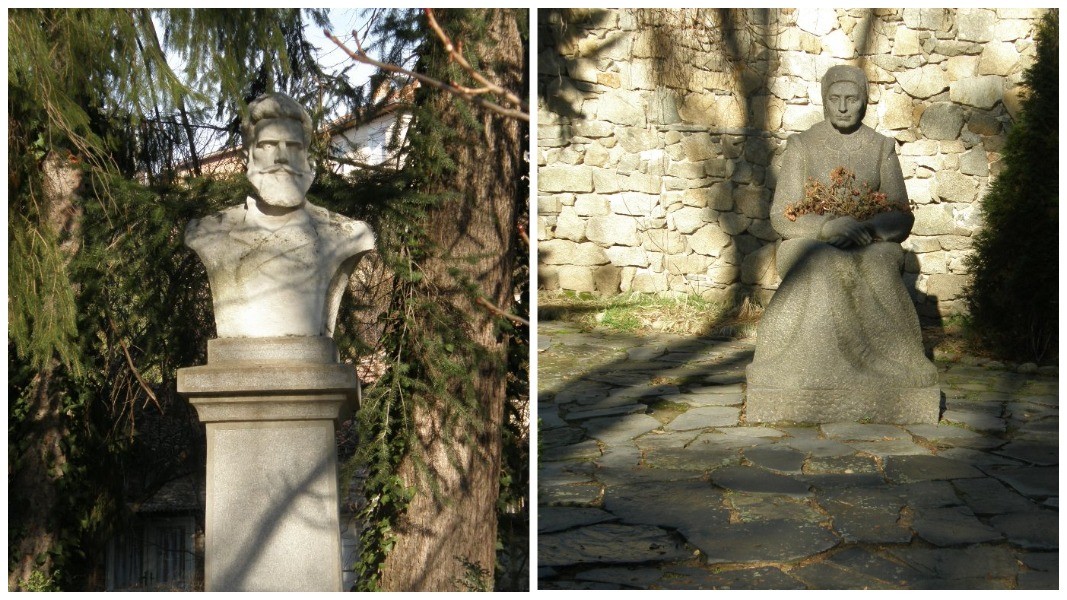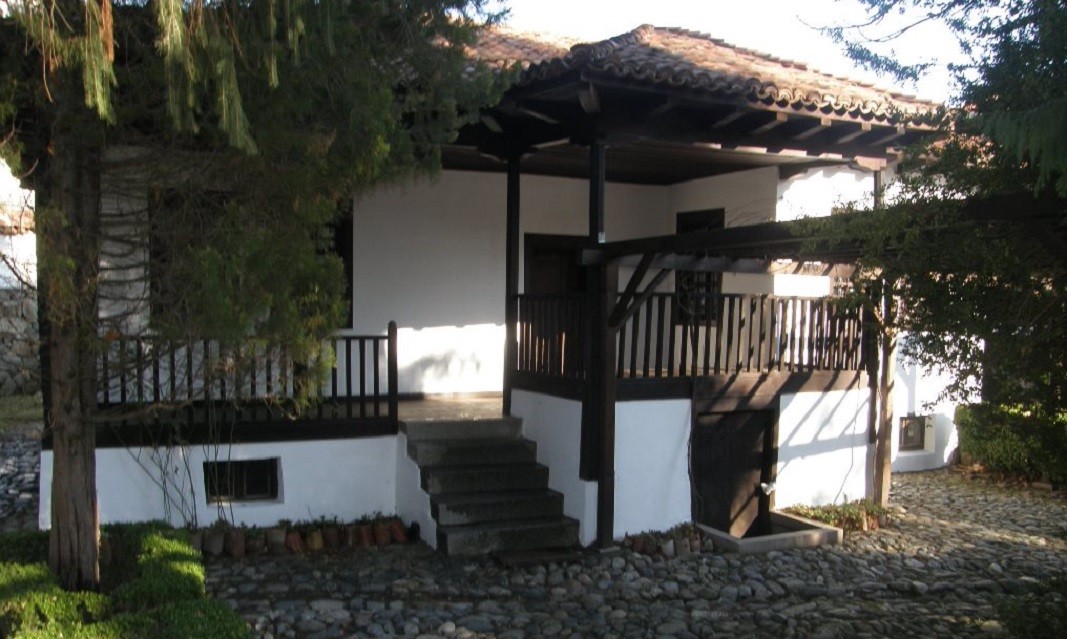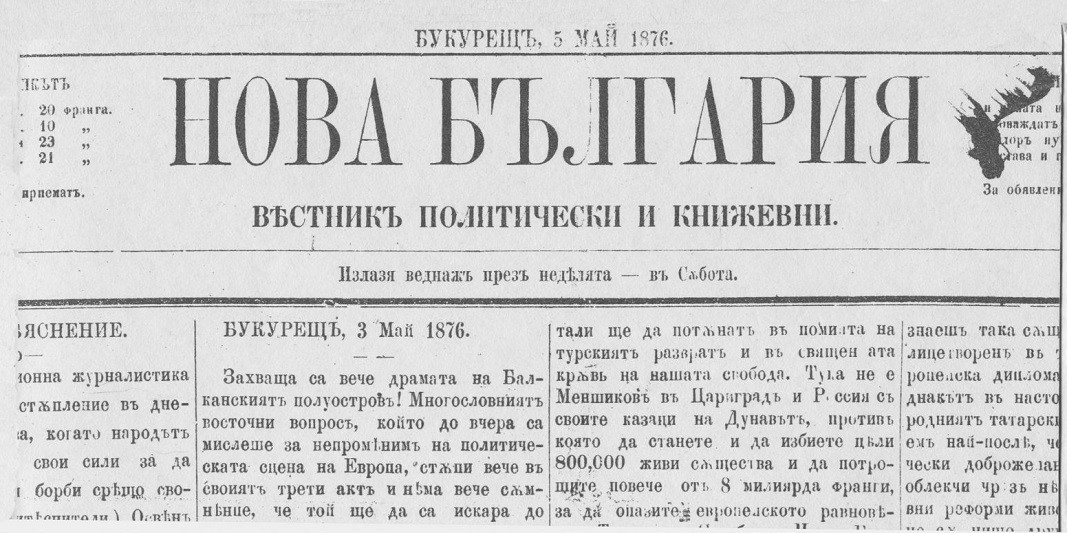To be born on Epiphany 175 years ago and to fulfill your own covenant: "He who falls in the fight for freedom, he does not die: he is pitied by earth and sky, beast and nature, and singers sing songs about him...".
All this and much more is the poet, revolutionary and one of the pillars of Bulgarian culture, Hristo Botev. Today's anniversary is celebrated with special solemnity in the hometown of the great Bulgarian Kalofer. The celebrations there began already on January 5 at the Hristo Botev National Museum with a solemn performance by the graduates of the local high school named after the poet. The event was followed by a worship ceremny in front of the memorial plaque at Botev’s birthplace.
"This is a kind of an interpretation of everything that Hristo Botev means for us as an individual, as a personality, and in this way, high-school students have the opportunity to get in touch with his poems, his prose, and most of all, to learn something more about this great Bulgarian," Asya Nikolova, director of the National Museum in Kalofer, told Radio Bulgaria.
On the date of Botev’s birth - January 6, the celebrations once again traditionally start from the courtyard of the National Museum, where the first monument to the revolutionary erected in his hometown is located. Flowers will also be presented to the monument of his mother Ivanka Boteva. In the courtyard of the house where the family lived for the longest time, the first poem of Botev, "To my mother" will be performed, Asya Nikolova adds.

The center of the celebration, the Hristo Botev National Museum in Kalofer, was built on the site where the last house of the Botev family was located and where they lived the longest. It is a complex located in Boteva Garden Park, created in 1926 and including a memorial house-museum, an exhibition hall, a monument to Hristo Botev from 1930 and a monument to the mother of the poet Ivanka Boteva. From this home, the revolutionary left for a "foreign country" to give "strength and youth" for the freedom of his beloved Fatherland. The house was destroyed during the fire in the town in 1877. On the initiative of the citizens of Kalofer and patriotic Bulgarians from all over the country, the building was restored according to the memories of the brother of the poet, gen. Kiril Botev, and older people from Kalofer. It was officially opened as a museum on June 2, 1944.

Today, the Hristo Botev National Museum enjoys great interest from visitors. Above all, these are Bulgarian students, young people, and families, Asya Nikolova explains. And she adds that in the last 10 years they have had many visits from Bulgarians have been living abroad for years, but want to show their children the place, the relics it protects and the memory of the great Bulgarian courage and faith.
"These children are from the generation that knows almost nothing about our history. For the fascinating Bulgarian Revival Period, when we turn from a people into a conscious nation and wish to be free. They are the visitors we value the most, because in this way they do not break the connection with their homeland, with their roots. It is difficult to explain to today's young people why, at the age of 28, a young man by modern standards but a mature man for his time, abandoned everything - both his newborn daughter, and the printing house, and, as he himself writes, goes to fight with the clear awareness that with the available weapons, training and energy it will be difficult to bring down an entire empire. But also with the conscious feeling that this work of theirs will be heard in Europe and this wise decision will be made for Bulgaria’s independence from the Ottoman Empire. That is why Botev's latest introductory article in the "New Bulgaria" newspaper is dedicated to the topic of the drama on the Balkan Peninsula. The telegrams that he sent to European newspapers were really the first sign that the situation in Bulgaria was intolerable and the people were already consciously starting a struggle for their political liberation”.

Hristo Botev spent part of his life in Ukraine, in particular in Odessa, Zadunaevka and Izmail, which makes him part of the history of the Bulgarians in these places. There he received an education, worked as a teacher and wrote his first poem "То My Mother".
Asya Nikolova regretfully admits that these facts are seemingly common knowledge, but Bulgarians today seem to forget them or simply pass by them without fully comprehending them. "We remember our great personalities during celebrations on specific dates," she says. And she admits that if each one of us does their job in their own field, just as Bulgarians like Hristo Botev did, maybe we will be more tolerant, more responsible and happier as a nation. Namely, we should do things with dedication and great responsibility, with the understanding of freedom as an inner need, says Nikolova:
"Then we will also want to contribute to the uplifting of our Bulgaria. But when we talk about "that country" or "this country" we will not be productive and change will not happen. When we realize that we are ``that country'', perhaps we will become a little more worthy of the covenants of Botev, Rakovski and Levski”, concludes Asya Nikolova.
The only chapel in the country to bear the names of Saints Anthony and Atha nasius is in Sandanski, and its consecration will be performed by His Eminence Metropolitan Seraphim of Nevrokop, reports Andon Kotev - one of the initiators of the idea to..
On January 17, the Orthodox Church honors the memory of St. Anthony the Great – a zealous advocate of Christianity. At an advanced age, he took part in the Church's struggle against the Arian heresy. Anthony got into an open dispute with the..
His Eminence Metropolitan Anthony of Western and Central Europe and BNR Director General Milen Mitev signed a Memorandum of Cooperation at the headquarters of the Bulgarian Orthodox Church Diocese of Western and Central Europe in the German capital,..

+359 2 9336 661
